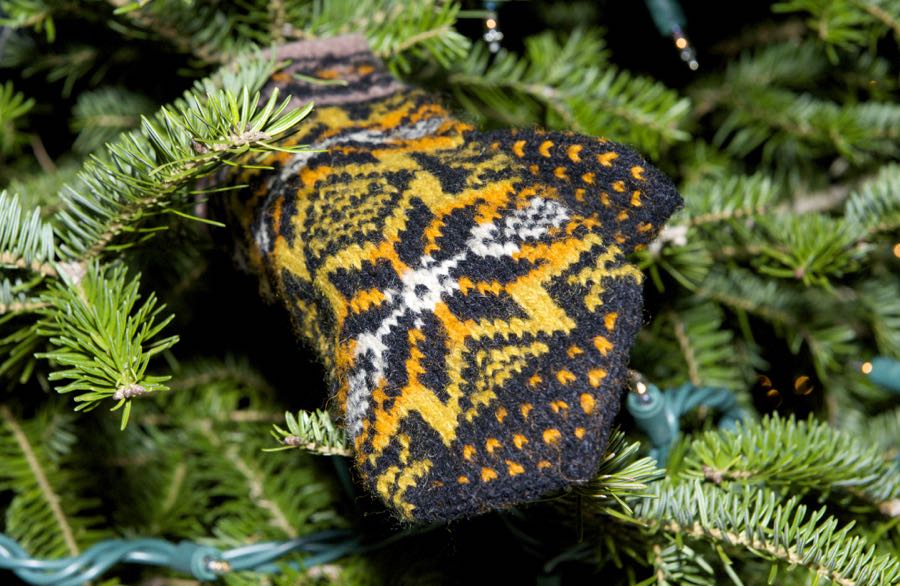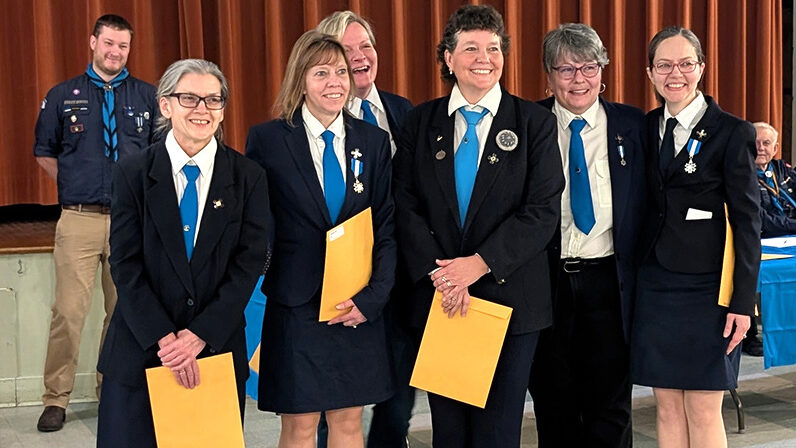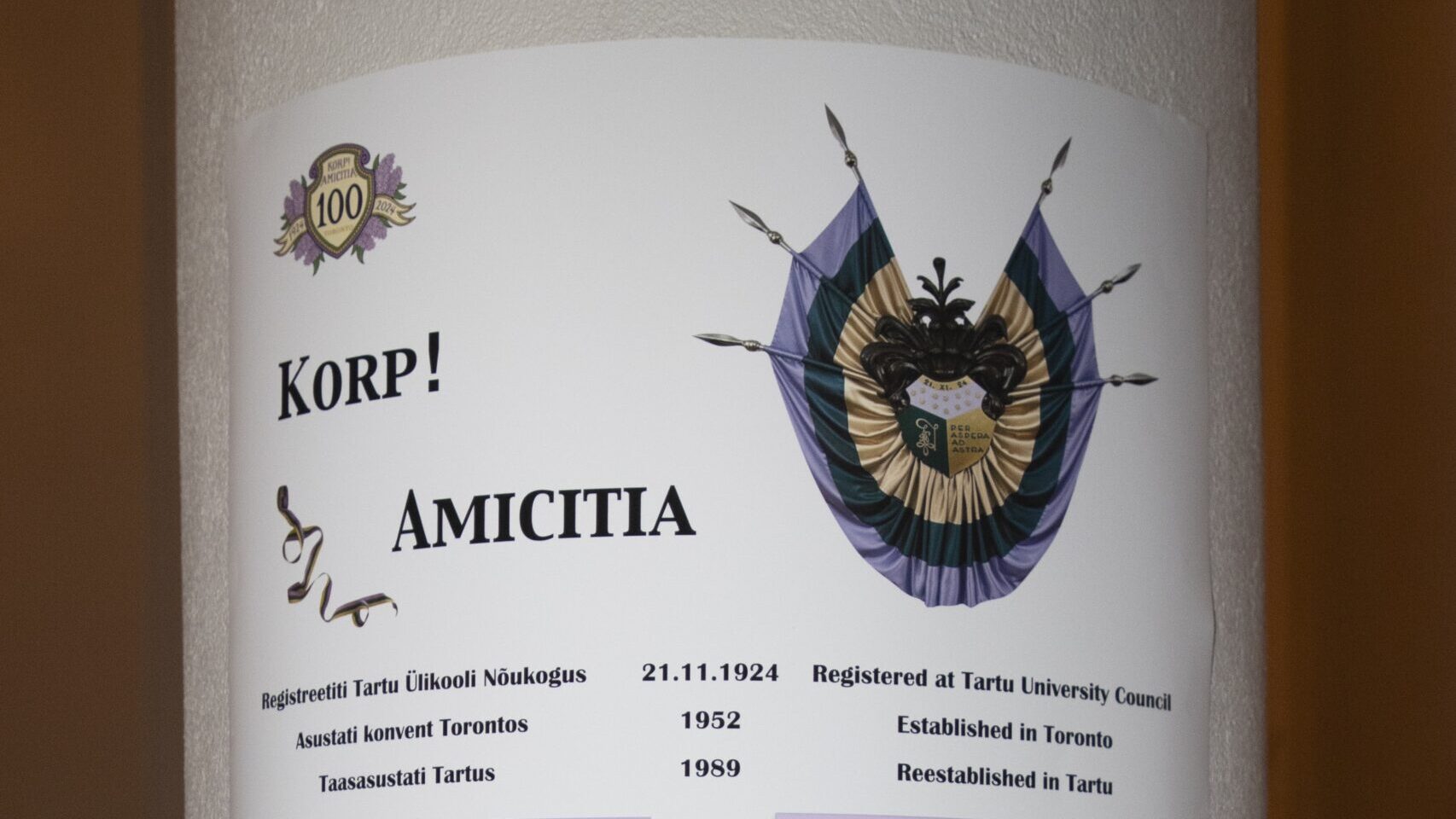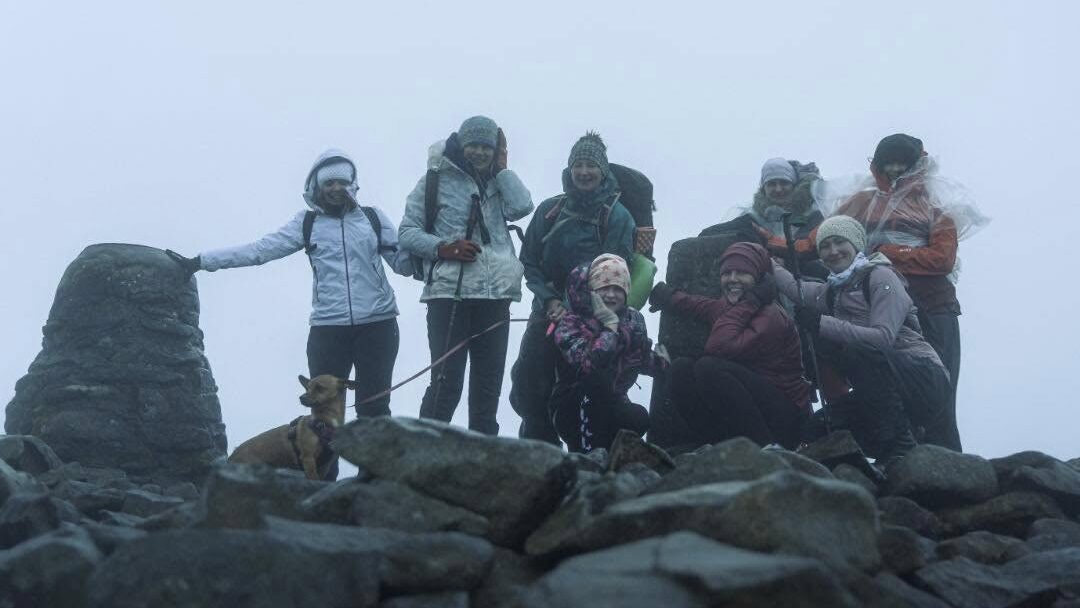Our lives had changed drastically. The grief of abandoning familiar surroundings and relatives seemed to rob one of the fullness of Christmas joy. It seemed as if nothing was left of one's previous life. But my parents were still determined to salvage as much feeling as possible from the Christmas as it unfolded.
A section of the gymnasium had been made into a space where the Christmas ‘party' could be held. In spite of the tragedy of having to flee one's home country the Christmas mood was still able to push aside somber recollections. The aroma of spruce needles and burning candles attached to the Christmas tree were taken for granted as aspects of the Christmas setting.
We heard the Christmas gospel and sang Silent Night. We also sang of Christmas trees and sleigh bells.
Christmas symbolized hope and Heino Jõe, prominent scoutmaster, journalist, community leader talked about hope. He reassured us that our life as war refugees would only last a short time. It would be temporary, because the Western world would realize the injustice that had been done to the Baltic states and would force the Soviet Union out. He stressed that Christmas was a time to aspire for better times. That hope will carry us through.
Santa Claus cane personally to give each child a small present. We didn't expect anything more than what we got – a handful of ginger snaps wrapped in plain paper. In spite of the unpretentiousness of the gifts we were still happy that we were together with people of similar fate with the same hope. Missing was the usual hustle and bustle of past Christmases my parents said.
Often I would hear about the fate of our compatriots in refugee camps in Germany and of Estonian soldiers still on the battlefront. It would take some five months before the war was to end and we knew that conditions in the German camps were harsh.
We remembered those who had fought in the last defence battles giving us the chance to escape the Red Army offensive. One speaker dwelled on the fate of Estonian soldiers still in foreign uniforms forced to remain on the battlefield. They were in a foreign country, at an artillery position or trench. A year later they were either a prisoner of war, in a refugee camp, an anti-Soviet partisan or in the vast array of labour camps in the hinterlands of Russia.
From my parents conversations over the years, I understood that the Christmas feeling in the refugee shelter fueled the hope that the West would see the necessity of freeing the captive Baltic nations. Surely the Christmas spirit couldn't be one of delusion and misplaced trust. The symbol of the birth of the Saviour was so enduring and powerful that thoughts of a newly free homeland had to auger the same reality.
But that first Christmas in exile and many Christmases since were initially full of fresh hope and thereafter disappointment that the true meaning of Christmas that we in exile embraced was still only cautiously and with political restrictions enjoyed by Estonians in our occupied homeland.
Now 70 years later the delusions and disappointments are only memories. The feeling of hope of our first Christmas as refugees seems more meaningful now. Let it endure.
Laas Leivat




